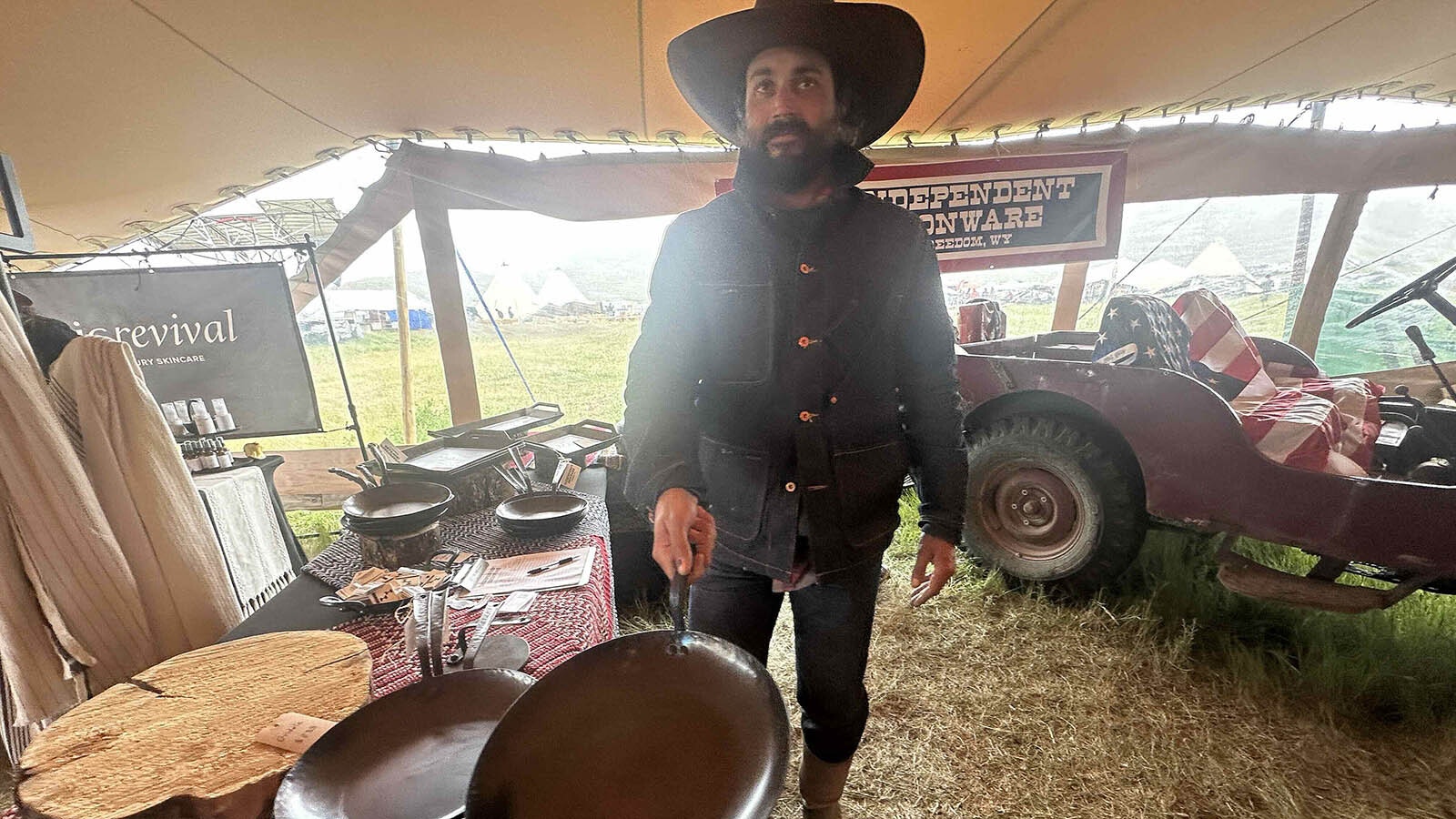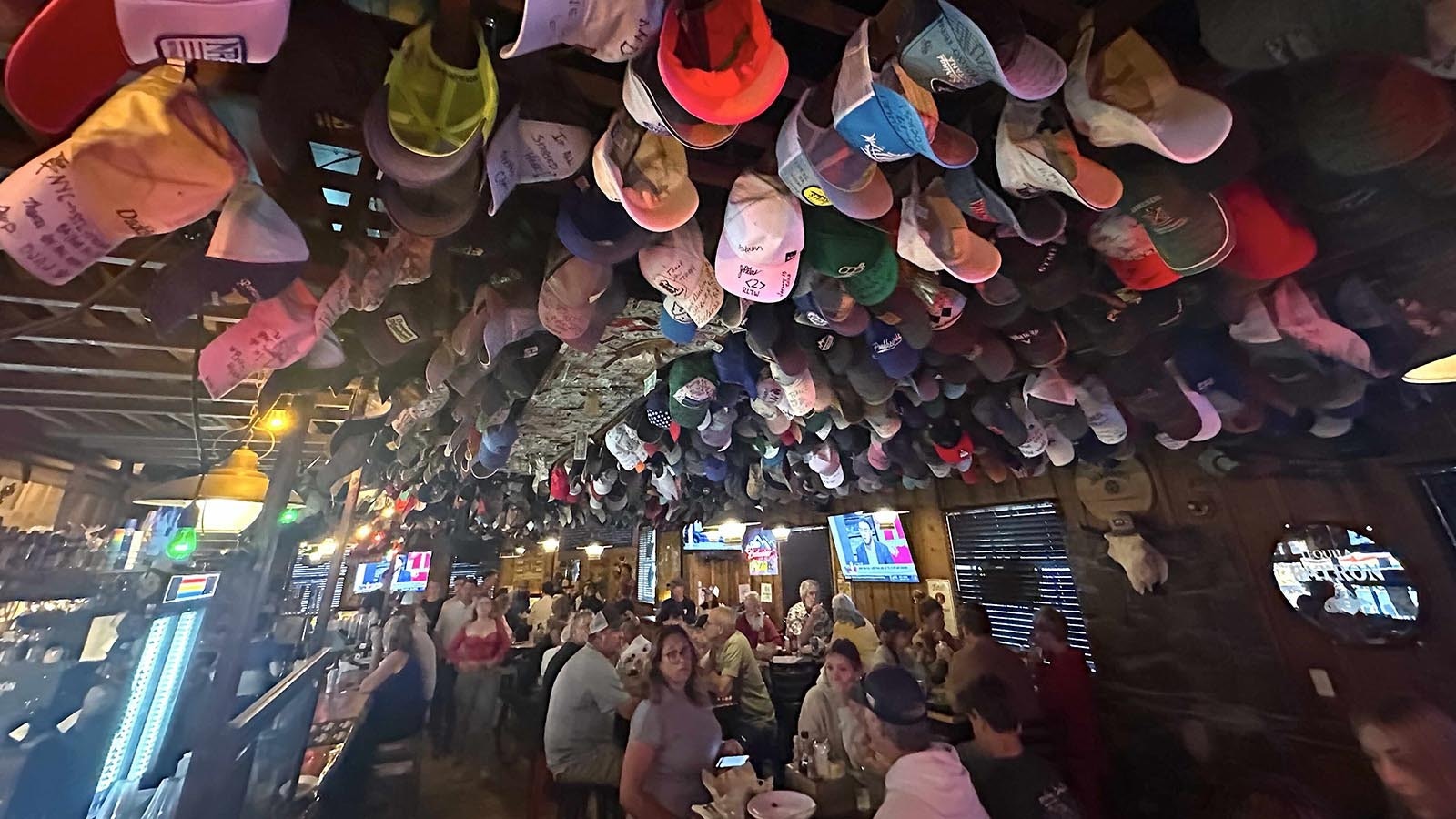By Ike Fredregill, Cowboy State Daily
A recently announced entrepreneurship challenge focused on engaging future business startups in the Wind River Indian Reservation could help Native Americans return to their entrepreneurial roots, a University of Wyoming spokesperson said.
“We don’t see that much entrepreneurship or very many businesses started by community members on the reservation,” said James Trosper, executive director for University of Wyoming High Plains American Indian Research Institute. “But we used to be entrepreneurs. Both the Eastern Shoshone and Northern Arapaho were very rich tribes. A lot of historians referred to the Arapaho as the ‘Phoenicians of the Plains.’”
Hosted by the UW’s business incubator, the Wyoming Technology Business Center, the Wind River Start-Up Challenge is the center’s fourth entrepreneur initiative statewide and the first to be tried outside the center’s facilities, said WTBC-Laramie Director Dave Bohling.
“No one has ever done this before with the National Science Foundation Established Program to Stimulate Competitive Research (EPSCoR) funds,” Bohling said. “So, we’re an experiment.”
When Trosper heard about the EPSCoR grant’s need for diverse recipients, he said he pitched the idea for a startup challenge on the reservation.
“The WTBC wanted to have entrepreneurship initiatives statewide,” Trosper explained. “But they didn’t have anything specifically for the reservation.”
The EPSCoR program provided the startup challenge with $50,000, which he said could be awarded to Native American entrepreneurs with successful business pitches during the next two years.
With the funding secured, WTBC decided to model the challenge after the Fisher Innovation Launchpad, a long-running startup initiative based out of UW in Laramie.
WTBC-Laramie Assistant Director Fred Schmechel said Fisher has proven the model’s efficacy.
“The university has had great success with our startup challenges,” Schmechel said. “We’re hoping this is a model that can be applied to an area that’s far less served than the rest of the state.”
Culture of dependency
Growing up on the reservation, Trosper said entrepreneurs were absent from the community.
“In the back of my mind, I always wondered ‘Why aren’t my people starting businesses,’” he said. “I was lucky, though. My mother earned a degree in optics, returned to the reservation and started a business called Wind River Optical. So, I got to watch firsthand the success entrepreneurship could provide.”
Trosper’s mother was a member of the Eastern Shoshone tribe and the great granddaughter of Chief Washakie. His father was Northern Arapaho and the great grandson of Chief Friday. Thus, Trosper said he has strong ties to both tribes’ past, and he would like to see them return to their entrepreneurial roots.
“The government, when they put us on the reservation, they said, ‘You can’t leave this geographical area,’ which ended our trade routes and fur-trade economy,” he explained. “Instead, they said they would provide us blankets, rations and food. And that created a culture of dependency.”
That culture remains strong today, he said, and the Bureau of Indian Affairs reported in 2005 the Wind River Reservation unemployment rate was more than 70 percent.
“We’re not setting out to change unemployment right away,” Trosper said. “But as we start to change the culture of dependency, things are going to start to change in the community. I think entrepreneurship will have positive effect on the community as a whole.”
Pitches
While the challenge won’t officially kick off until fall, Bohling said WTBC staff will be visiting the reservation throughout the summer to work with potential participants.
“The first step is pitching an idea: who are you, what problem are you trying to solve, what’s your solution and who are your potential customers,” he said. “We’re only asking for a paragraph or two, because most proposals don’t survive as submitted.”
Prior to submitting pitches, Trosper said WTBC staff will mentor participants, refining their ideas and helping them get an idea about how much funding they might need to get started.
“We want to provide some training right up front before the competition even starts,” he explained. “And during the competition, they will receive mentorship so they can really understand what the UW has to offer to them.”
Despite the use of terms like winner and competition, Bohling said participants are not competing against each other for funding, but rather themselves.
“This is not a contest — the challenge part is internal,” he explained. “There will be a lot work on their part to get these pitches together and get their ideas off the ground. We provide some money, but we’re investing in sweat equity.”
Once pitch day arrives, a panel of judges will decide which ideas are viable in their current form and in the current market. If an idea isn’t funded, Schmechel said participants are encouraged to continue working with the WTBC and resubmit amended pitches in following years.
No matter the challenge’s number of participants or funded pitches, Trosper said he believes the initiative could be a catalyst for change on the reservation.
“Entrepreneurship isn’t something we’re born with, it’s something that has to be taught,” he said. “Getting people familiar with that, it will take time. But, I think the startup challenge is a way to really get our community to start thinking about what they could do on the business level.”
The partnership between HPAIRI and WTBC was announced at the WY-Wind River: Economic Development & Entrepreneurship Symposium. Find our coverage of that event here.





